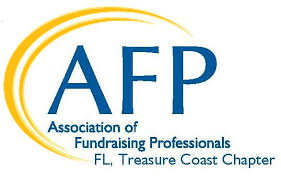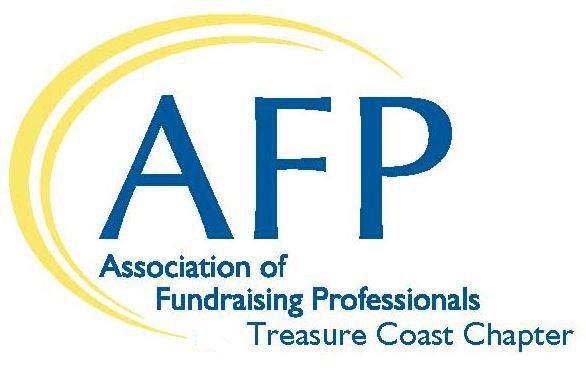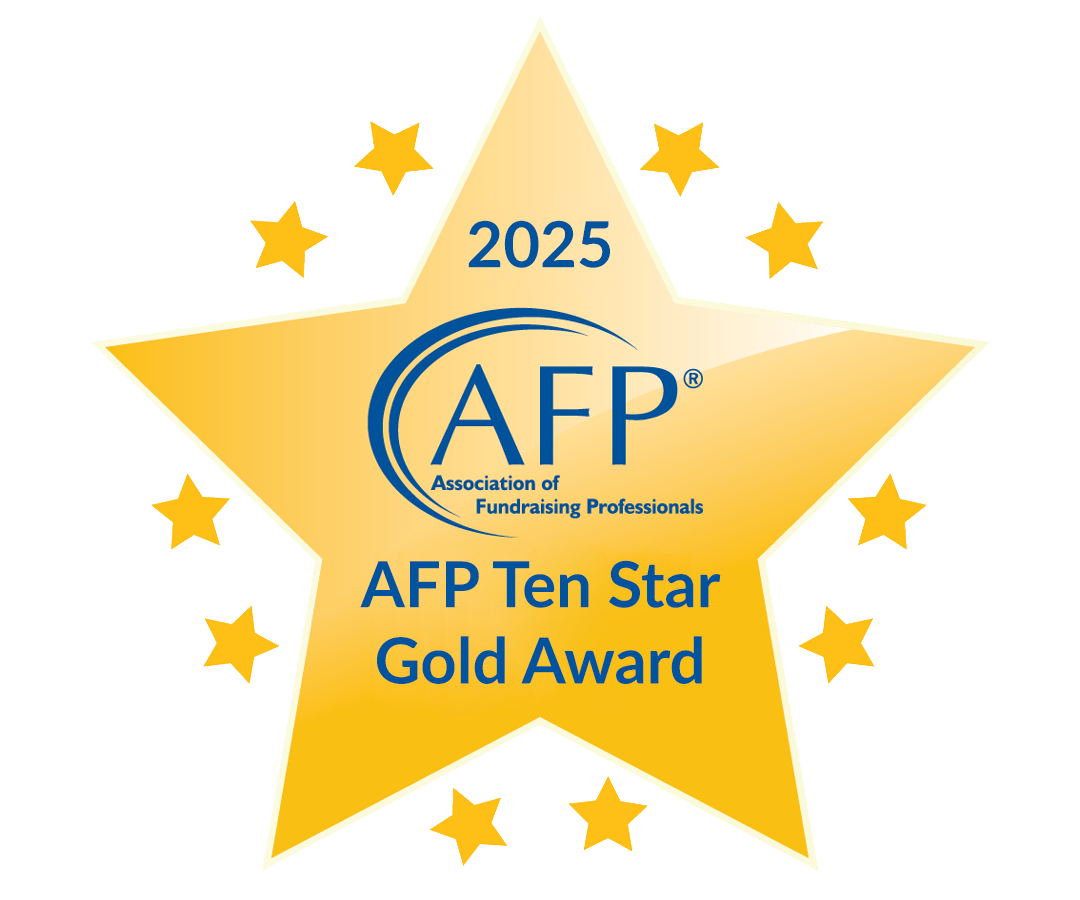Code of Ethics &
Donor Bill of Rights

Adopted 1964; amended Sept. 2007
The Association of Fundraising Professionals (AFP) exists to foster the development and growth of fundraising professionals and the profession, to promote high ethical behavior in the fundraising profession and to preserve and enhance philanthropy and volunteerism.
Members of AFP are motivated by an inner drive to improve the quality of life through the causes they serve. They serve the ideal of philanthropy, are committed to the preservation and enhancement of volunteerism; and hold stewardship of these concepts as the overriding direction of their professional life. They recognize their responsibility to ensure that needed resources are vigorously and ethically sought and that the intent of the donor is honestly fulfilled.
To these ends, AFP members, both individual and business, embrace certain values that they strive to uphold in performing their responsibilities for generating philanthropic support. AFP business members strive to promote and protect the work and mission of their client organizations.
AFP members both individual and business aspire to:
- practice their profession with integrity, honesty, truthfulness and adherence to the absolute obligation to safeguard the public trust
- act according to the highest goals and visions of their organizations, professions, clients and consciences
- put philanthropic mission above personal gain;
- inspire others through their own sense of dedication and high purpose
- improve their professional knowledge and skills, so that their performance will better serve others
- demonstrate concern for the interests and well-being of individuals affected by their actions
- value the privacy, freedom of choice and interests of all those affected by their actions
- foster cultural diversity and pluralistic values and treat all people with dignity and respect
- affirm, through personal giving, a commitment to philanthropy and its role in society
- adhere to the spirit as well as the letter of all applicable laws and regulations
- advocate within their organizations adherence to all applicable laws and regulations
- avoid even the appearance of any criminal offense or professional misconduct
- bring credit to the fundraising profession by their public demeanor
- encourage colleagues to embrace and practice these ethical principles and standards
- be aware of the codes of ethics promulgated by other professional organizations that serve philanthropy

Furthermore, while striving to act according to the above values, AFP members, both individual and business, agree to abide (and to ensure, to the best of their ability, that all members of their staff abide) by the AFP standards. Violation of the standards may subject the member to disciplinary sanctions, including expulsion, as provided in the AFP Ethics Enforcement Procedures.
Member Obligations
- Members shall not engage in activities that harm the members’ organizations, clients or profession.
- Members shall not engage in activities that conflict with their fiduciary, ethical and legal obligations to their organizations, clients or profession.
- Members shall effectively disclose all potential and actual conflicts of interest; such disclosure does not preclude or imply ethical impropriety.
- Members shall not exploit any relationship with a donor, prospect, volunteer, client or employee for the benefit of the members or the members’ organizations.
- Members shall comply with all applicable local, state, provincial and federal civil and criminal laws.
- Members recognize their individual boundaries of competence and are forthcoming and truthful about their professional experience and qualifications and will represent their achievements accurately and without exaggeration.
- Members shall present and supply products and/or services honestly and without misrepresentation and will clearly identify the details of those products, such as availability of the products and/or services and other factors that may affect the suitability of the products and/or services for donors, clients or nonprofit organizations.
- Members shall establish the nature and purpose of any contractual relationship at the outset and will be responsive and available to organizations and their employing organizations before, during and after any sale of materials and/or services. Members will comply with all fair and reasonable obligations created by the contract.
- Members shall refrain from knowingly infringing the intellectual property rights of other parties at all times. Members shall address and rectify any inadvertent infringement that may occur.
- Members shall protect the confidentiality of all privileged information relating to the provider/client relationships.
- Members shall refrain from any activity designed to disparage competitors untruthfully.
Solicitation and Use of Philanthropic Funds
- Members shall take care to ensure that all solicitation and communication materials are accurate and correctly reflect their organizations’ mission and use of solicited funds.
- Members shall take care to ensure that donors receive informed, accurate and ethical advice about the value and tax implications of contributions.
- Members shall take care to ensure that contributions are used in accordance with donors’ intentions.
- Members shall take care to ensure proper stewardship of all revenue sources, including timely reports on the use and management of such funds.
- Members shall obtain explicit consent by donors before altering the conditions of financial transactions.
Presentation of Information
- Members shall not disclose privileged or confidential information to unauthorized parties.
- Members shall adhere to the principle that all donor and prospect information created by, or on behalf of, an organization or a client is the property of that organization or client and shall not be transferred or utilized except on behalf of that organization or client.
- Members shall give donors and clients the opportunity to have their names removed from lists that are sold to, rented to or exchanged with other organizations.
- Members shall, when stating fundraising results, use accurate and consistent accounting methods that conform to the appropriate guidelines adopted by the American Institute of Certified Public Accountants (AICPA)* for the type of organization involved. (* In countries outside of the United States, comparable authority should be utilized.)
Compensation and Contracts
- Members shall not accept compensation or enter into a contract that is based on a percentage of contributions; nor shall members accept finder’s fees or contingent fees. Business members must refrain from receiving compensation from third parties derived from products or services for a client without disclosing that third-party compensation to the client (for example, volume rebates from vendors to business members).
- Members may accept performance-based compensation, such as bonuses, provided such bonuses are in accord with prevailing practices within the members’ own organizations and are not based on a percentage of contributions.
- Members shall neither offer nor accept payments or special considerations for the purpose of influencing the selection of products or services.
- Members shall not pay finder’s fees, commissions or percentage compensation based on contributions, and shall take care to discourage their organizations from making such payments.
- Any member receiving funds on behalf of a donor or client must meet the legal requirements for the disbursement of those funds. Any interest or income earned on the funds should be fully disclosed.

Philanthropy is based on voluntary action for the common good. It is a tradition of giving and sharing that is primary to the quality of life. To assure that philanthropy merits the respect and trust of the general public, and that donors and prospective donors can have full confidence in the not-for-profit organizations and causes they are asked to support, we declare that all donors have these rights:
I. To be informed of the organization’s mission, of the way the organization intends to use donated resources, and of its capacity to use donations effectively for their intended purposes.
II. To be informed of the identity of those serving on the organization’s governing board, and to expect the board to exercise prudent judgment in its stewardship responsibilities.
III. To have access to the organization’s most recent financial statements.
IV. To be assured their gifts will be used for the purposes for which they were given.
V. To receive appropriate acknowledgment and recognition.
VI. To be assured that information about their donations is handled with respect and with confidentiality to the extent provided by law.
VII. To expect that all relationships with individuals representing organizations of interest to the donor will be professional in nature.
VIII. To be informed whether those seeking donations are volunteers, employees of the organization or hired solicitors.
IX. To have the opportunity for their names to be deleted from mailing lists that an organization may intend to share.
X. To feel free to ask questions when making a donation and to receive prompt, truthful, and forthright answers.
Endorsed by
Independent Sector
National Catholic Development Conference (NCDC)
National Committee on Planned Giving (NCPG)
Council for Resource Development (CRD)
United Way of America




